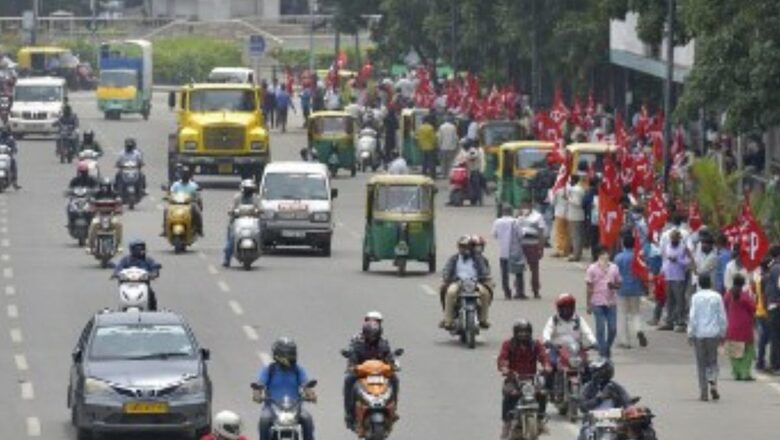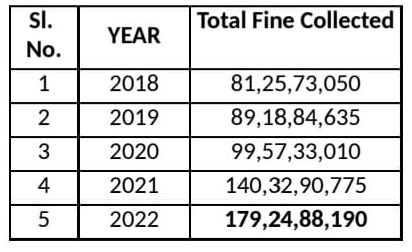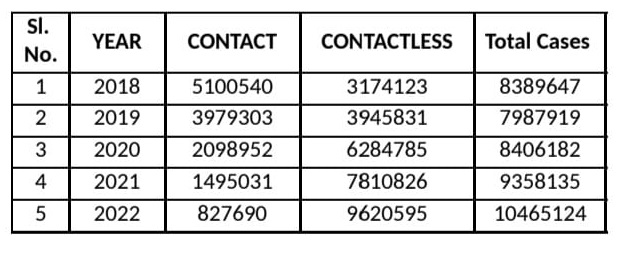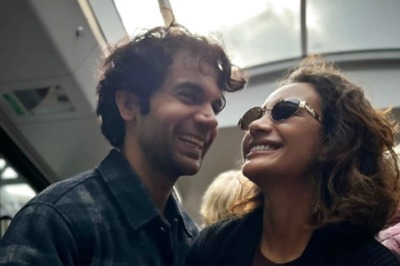
views
Technology has its advantages and India’s tech hub Bengaluru saw its effective use when the city traffic police introduced artificial intelligence (AI) to ease congestion on roads. It not only filed the highest number of traffic violations in the world, but also earned crores in fines.
The use of AI helped the traffic police register 1,04,00,000 violations in just one year, which is the highest recorded in any city of the world, and earn Rs 180 crore in fine collection. “This shows that our enforcement mechanisms are robust. We can effectively book violators and also give the people of Bengaluru the ease of comfortable and safe travel,” said special police commissioner (traffic) Dr MA Saleem, who has been tasked with removing the city’s “terrible traffic” tag.

“It is uncivilised and unacceptable behaviour and needs to be curbed immediately,” Saleem said.

Interestingly, the traffic police finds the number to be higher as the contactless booking (using (AI, CCTV cameras) has helped track violations better.
From ‘Terrible’ Tag to AI-powered Ease, How #Bengaluru is Managing its Traffic Woes!News18's @Rohini_Swamy asks Bengaluru Special Police Commissioner (traffic) Dr MA Saleem#AI #BengaluruTraffic pic.twitter.com/isJwRbe28a
? News18 (@CNNnews18) January 8, 2023
Bengaluru’s crippling traffic had become a major concern for the Basavaraj Bommai-led Karnataka government. In November, the chief minister said his government’s top priority was to re-haul and professionalise traffic management in the state capital.
So when Bommai went looking for a person who could help resolve the problem, there was just one name – MA Saleem, the man who knows Bengaluru and its traffic like the back of his hand. The 1993-batch IPS officer’s passion for traffic management and innovation led him to do a PhD in the subject with regard to metropolitan cities.
Speaking exclusively to News18, MA Saleem explained how the department had to make a paradigm shift to sort out the city’s traffic woes. “We had to make a paradigm shift of our focus from enforcement to regulation. The traffic police were focusing on registering cases and stopping vehicles, and that was further adding to road congestion,” he said.
During his earlier stint in managing city traffic, he had earned the moniker ‘one way Saleem’ for introducing one-way rule on 122 key roads and junctions to streamline traffic flow via a scientific study and approach.
Saleem also found that the rule banning entry of heavy and medium goods vehicles during peak hours was not being effectively implemented, causing roads to choke.
“Once we stopped the movement of these vehicles, it cut down traffic by 25% and brought great relief to office-goers during peak morning and evening hours,” he said.
For areas like Hebbal, Gorgunteplaya, Silk Board junction, and KR Puram – which have perennial congestion issues – Saleem and his team worked out a system of making them “signal-free” or introducing synchronised signals to help free flow of traffic.
“In places like the Hebbal flyover, which used to be completely choked, we segregated local traffic from those going to the airport,” he said. In the six weeks since he took over, Saleem was able to make a visible difference in the traffic flow. The department has also introduced contactless traffic management through which violators can be booked with minimum human intervention.
The newly developed Intelligent Traffic Management System (ITMS), which is an AI, helps in detecting seven visible traffic violations and generates challans. It has 250 automatic number plate recognition (ANPR) cameras and 80 red light violation detection (RLVD) cameras.
“The 330 cameras installed under ITMS can detect violations like overspeeding, jumping signal, triple riding, using mobile phones while driving, driving without seat belt, or riding without helmet. The cameras capture the number plates and face of the person, and the information is then transferred to our server where the challan is automatically generated,” the special commissioner said.
This advanced technology is being tested at 50 key traffic junctions across Bengaluru, but Saleem underscored the fact that the objective was to ensure good road behaviour, act as a deterrent and bring in traffic rule compliance – not just collect fines.
When asked about what happens to the fines collected by the department, Saleem explained while the money is given to the government, a portion of the collection is given to the traffic department which is used for traffic equipment upgrades, annual maintenance and installation of traffic signals and CCTV cameras and patrolling vehicles. ?We use the funds based on our requirements and the rest is handed over to the government,? Saleem pointed out.
Deputy inspector general of police MN Anucheth, who also holds the post of joint commissioner traffic, was also roped in to assist Saleem. He has played a pivotal role in encouraging the use of technology and AI to help work out smoother travel on Bengaluru roads.
He spoke to News18 about how people’s thinking should move away from congestion to enhancing mobility. “There is a need to use multi-modal means of public transport, and judicious use of private transport will enhance the comfort level while travelling from point A to B. The mindset should change towards enhancing mobility,” Anucheth said.
The DIG said he believed that any new form of connectivity, apart from the road, should be explored and since the surface area does not increase compared to the vehicles that hit the roads, it would be optimal if people could start using alternate forms of transportation like Metro, buses, suburban rail among others.
“A case in point is Mumbai, where 73 percent people use public transport. But in Bengaluru, it is only 47 percent. Imagine us going to 73 percent, there will be a huge improvement in traffic management. We need to encourage the use of public transport,? he added.
Read all the Latest India News here













Comments
0 comment